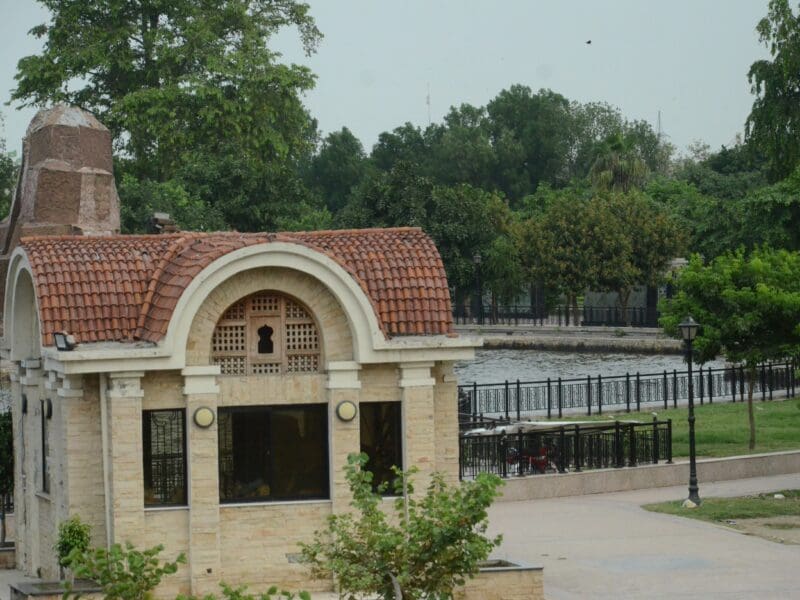
A Conversation with Yael Eckstein, IFCJ President and CEO, on the Power of Asking for Help
Yael Eckstein, President and CEO of IFCJ, the International Fellowship of Christians and Jews, oversees all of the organization’s ministry programs and serves as the organization’s international spokesperson.
Prior to her present duties, Yael served as Global Executive Vice President, Senior Vice President, and Director of Program Development and Ministry Outreach. Based in Israel with her husband and their four children, Yael is a published writer and a respected social services professional.
Yael Eckstein has contributed to The Jerusalem Post, The Times of Israel, and other publications, and is the author of three books: Generation to Generation: Passing on a Legacy of Faith to Our Children, Holy Land Reflections: A Collection of Inspirational Insights from Israel, and Spiritual Cooking with Yael. In addition, her insights into life in Israel, the Jewish faith, and Jewish-Christian relations can be heard on The Fellowship’s radio program, Holy Land Moments, which airs five times per week on over 1,300 radio stations around the world.
Yael has partnered with other global organizations, appeared on national television, and visited with U.S. and world leaders on issues of shared concern. She has been a featured guest on CBN’s The 700 Club with Gordon Robertson, and in 2015 served on a Religious Liberty Panel in Washington, D.C. The same year, Yael’s influence as one of the young leaders in Israel was featured as the cover story of Nashim [Women] magazine. In 2019, The Algemeiner named Yael to the Jewish 100, citing the positive influence she has made to Jewish life, and referring to her as “the world’s leading Jewish interfaith activist.” In 2020 and 2021, she was named to the Jerusalem Post’s list of 50 Most Influential Jews.
Born in Evanston, Illinois, outside of Chicago, and well-educated at both American and Israeli institutions – including biblical studies at Torat Chesed Seminary in Israel, Jewish and sociology studies at Queens College in New York, and additional study at Hebrew University in Jerusalem – Yael Eckstein has also been a Hebrew and Jewish Studies teacher in the United States.

How do you feel about asking people for help?
Asking for help makes a lot of people uncomfortable. It might be hard to ask for help, but it’s impossible to do everything on our own. In Exodus, God asks Moses to perform a difficult task, and we learn why asking for help isn’t a sign of weakness, it’s a step towards greatness. I want to encourage you to ask for what you need so that you can do all of the things that God wants you to do and be all that he created you to be.
What difficult task does God ask Moses to perform?
In Exodus 40:1-2, it reads: “Then the Lord said to Moses, “Set up the tabernacle, the tent of meeting on the first day of the first month.” These verses tell us that God directed Moses to assemble the tabernacle on the first day of the first Hebrew month. We know from Exodus 12:2, that the first month on the Hebrew calendar is the month that the Israelites left Egypt, the month of Nissan. God told Moses to assemble the sanctuary on the first day of Nissan, just about a full year after he had led the nation out of Egypt. On the surface, it seems that God’s instruction to Moses is all about the timing of the construction of the tabernacle. Nissan is the month when God brought the Israelites out of Egypt and took them to be His people.
Nissan is an appropriate time to create the Tabernacle, the place where the people would worship God. But according to Jewish tradition, there is more to this commandment than it seems. Up until now, everything that was done for the tabernacle was done by the people. Everyone contributed something from their time, their talent, and their possessions, but God reserved the honor of putting it all together for Moses. When God told Moses to set up the tabernacle on the first day of Nissan, he meant that Moses himself should be the one to erect it. But there was just one problem. Moses was only one man, and he wasn’t even a young man anymore. He did a few calculations and realized that it would be impossible for him to build the tabernacle on his own. According to tradition, Moses turned to God and asked, how is it possible for a human being to do this?
He said, “God, I really want to fulfill your will, but I can’t see how I can do this on my own.” God answered him. He said, “You make the effort and go through the motions of assembling the tabernacle. And then I will make a miracle and the tabernacle will assemble itself.” And that’s exactly what happened.
Like Moses, do you turn to God for help with difficult tasks?
The conversation that Moses had with God reminds me of the conversation that I often have with God in my own life. Most days, I wake up feeling excited about my job and about life in general. I’m blessed with a beautiful family and a job that is fulfilling and inspiring. But there are other days when the kids are sick, when my day is jam-packed with meetings, and then something unexpected turns up that needs my attention immediately.
It’s on those days, when it seems impossible to get everything done, that I turn to God, and like Moses, I say, “God, how is this humanly possible to do all of this? I’m just one person. I can’t do it on my own.” And every single time, I hear Him say from deep inside of me, “And you don’t have to.” As soon as I turn to God for help, my seemingly impossible days suddenly become possible to handle. The right people show up. Things fall into place and everything that really needs to get done is taken care of somehow. It might look like I’m getting everything done, but I know the truth. It’s not me. Like Moses, I’m going through the motions, but it’s God making everything happen. I truly believe that God never expects us to do more than we can. Our job is to do our best and he will help us do what we can’t do alone. But we have to ask Him. It’s such a simple thing.
Do you believe that God is ready and willing to help us when we ask Him?
In Psalms 81:9 we read, “Open wide your mouth and I will fill it.” God says, “Open your mouth in prayer. Ask me, ask me for anything, ask me for your needs and I’ll fill them.” And the same idea appears in the Christian Bible. In Philippians 4:6 it says, “Do not be anxious about anything, but in every situation by prayer and petition with Thanksgiving, present your request to God.” It is pretty clear. God is ready to help us, but sometimes we get so caught up in our challenges that we don’t do the one thing that is most likely to help us overcome those challenges: To stop and to ask God for His help. Maybe it’s because deep down, we don’t really believe that God will help us. Or maybe it’s because we cling to the idea that we should be able to do it all without any help, or maybe we just get so bogged down trying to figure out how to solve the problems that we can’t solve alone, that we forget that we don’t have to do it on our own.
Sometimes when we don’t ask God for help, whatever the reason, He might just send us reminders and encouragement to turn to Him.

Why is God so eager to help us when we ask Him?
We never have to face our challenges on our own. God wants to help us, but he also wants us to ask Him for it. Because when we ask God for help, we acknowledge that he is the source of everything. We recognize that he is our shield, our provider, and our help in hard times. And that strengthens our connection to Him. God wants a meaningful relationship with us. And when we ask for His help, our relationship becomes stronger and so do we. When we ask God for help, he’ll help us in ways we could never imagine. We might be able to do things we didn’t think we were capable of or things might work out in ways that we can’t explain. But other times, God will send our help in the form of other people.
How will we know when God has come to help us?
God won’t always send us a supernatural solution to our problems. Sometimes His help will come in the most natural way possible, in the form of another person offering to assist us. For some of us, this may feel uncomfortable. I know that I’m that way. I like to be the person giving help, not taking it. But I’ve also learned to graciously accept help when I can use it, even when that means accepting help from other people.
Here’s the thing. If you reject an offer of help, you are also rejecting a gift from God who sent the person to help you. And that makes me wonder, are there other gifts that we don’t receive just because God sends them through someone else? Is there help that we never receive because we won’t accept it from another person? Sometimes God will send us what we need through a friend, through a family member, or a stranger. And all we need to do is to be willing to accept it. That can be very challenging though for some of us. But other times, He asks us something even more difficult.
In order to receive the help that we need, we need to be willing to ask for it, not from Him, but from His messenger. We need to be willing to ask other people for help and for a lot of us that isn’t easy to do.
Why is asking for help so hard for most of us?
I have asked myself, why is it so hard for me to ask for help in the first place? Why is it so hard for most people to ask for help? For me, I think that sometimes it has to do with not wanting to feel vulnerable. By accepting help, I’m admitting that things are hard and that I don’t have everything completely under control. Other times, it has been about not wanting to be a burden, and not wanting to inconvenience anyone else for my sake.
But there are many reasons why people are uncomfortable asking for help. Some people worry that they’ll be seen as needy if they ask for help. And other people are afraid of feeling rejected if someone says no, some people don’t want to feel indebted to other people by taking help, and some people don’t want to ask for help because they think that it means that they aren’t good enough if they can’t do it all by themselves. But the truth is that we were never meant to do it ourselves. And there is nothing wrong with us when we can’t. God didn’t create us to do it all by ourselves. From the time we are born to the time that we die and many, many times in between we need help. And that’s not a bad thing.

Does the Torah teach about asking for help?
There are only two times in the five books of Moses where God uses the term that in English means, “it’s not good.” The first time is in reference to Adam, the first man. In Genesis 2:18 we read, “It’s not good for man to be alone. I will make a helper suitable for him.” The second time is when Moses’ father-in-law, Jethro, saw how overburdened Moses was when he served as the only judge for the entire nation of Israel. And in Exodus 18:17 he said, “what are you doing? It is not good.” And he helped Moses delegate his duties and set up a system that was better for everyone.
In both of these cases where the term, “it is not good,” is used, it is in reference to one person doing everything alone. God says, “It isn’t good.” Yes, we need helpers. We can’t do it all on our own. And we need to be willing to ask for help when we need it. Asking for help is the opposite of not good. Indeed, it is very good. Just like asking God for help strengthens our connection to Him, asking for help from others strengthens our bonds with our families, friends, and communities. And that is a very good thing. And I’ve also learned that asking for help and receiving it changes us for the better by making us more sensitive to the needs of others. We become more likely to help others and better at giving help in the best way possible. When you know what it is like to need help, it changes the way you give. I’m not going to sugarcoat it; asking for help isn’t easy. Even Moses struggled to do it. But like Moses, we need to do it anyway, for our sake and for the sake of everyone else.
When we feel like we have been given more than humanly possible to handle, we need to turn to God and ask Him to help us do what we can’t do on our own. If God’s help shows up in the form of assistance from other people, we need to accept it gracefully and graciously. And if help doesn’t come on its own, we need to be willing to ask for it from the people who can give us the support that we need. It may be hard to do, but it’s the right thing to do. We have nothing to lose, but our problems and our pride, and we have everything to gain.
Will God always provide the help that we need?
In Psalm 121:1-2. We read, “I lift up my eyes to the mountains from where does my help come? My help comes from the Lord, maker of heaven and earth.” When we have challenges that are too big to overcome on our own, we need to ask for help from God and from those who may be His messengers and we will always receive it. This week, let’s think about where we might need to ask for help instead of trying to do too much on our own. Can you identify the biggest challenges that you are facing right now? Can you set aside a time to pray each day for God’s help in those areas? Think about people in your life that you might be able to ask for help with your most difficult issues and challenge yourself to ask for it.
Asking for help might not be easy, but like everything else in life, the more we do it, the easier it will become. And the more we receive the support we need to stay happy, healthy, and whole, the more we will be able to pay it forward and help others in the same way.







